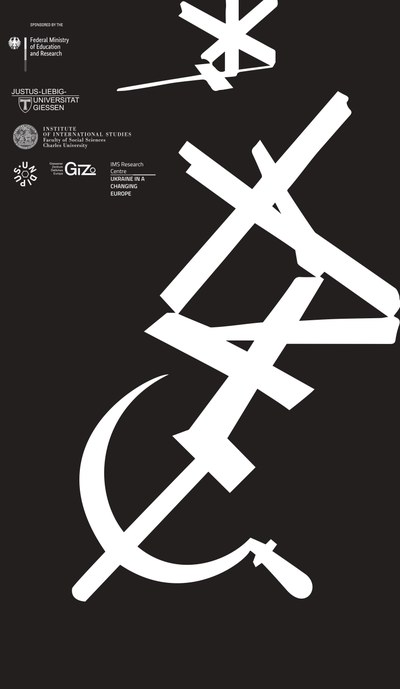Re-Thinking Post-Socialist War(s): Comparative Dimensions of the War in Ukraine (2014-2024)
An interdisciplinary conference
Where: GCSC (International Graduate Centre for the Study of Culture), Otto Behaghel Str. 12, 35394 Giessen
When: January 31 - February 2, 2025
Organizers: Justus Liebig University Giessen / UNDIPUS joint project & Charles University in Prague / IMS Research Centre “Ukraine in a Changing Europe”
Contact:
Dr. Alexander Chertenko (Justus Liebig University Giessen): oleksandr.chertenko@slavistik.uni-giessen.de
Dr. Valeria Korablyova (Charles University in Prague): valeriya.korablyova@fsv.cuni.cz
Funded by the Federal Ministry of Education and Research
The end of February 2024 marked ten years since the beginning of the war in Ukraine—heralded by an (almost) non-violent annexation of Crimea in March 2014 and culminating in an all-out war launched by Russia in February 2022. During this period, the war, which brought about massive destruction of human lives, ecosystems, and infrastructure, as well as large-scale displacement, became part and parcel not only of the global agenda in journalism, politics, culture, and academic research, but also a crucial factor in cultural production and identity formation.
Our interdisciplinary conference “Re-Thinking Post-Socialist War(s): Comparative Dimensions of the War in Ukraine (2014-2024)” aims at conceptualizing the repercussions of this highly traumatic event that changed the lives of millions of people in Ukraine and also became a game-changing factor on a global scale. It is a collaborative effort between the Justus Liebig University Giessen and the Charles University in Prague, which will be hosted at the University of Giessen on January 31 - February 2 2025 as part of the joint project “UNDIPUS—(Un)Disciplined: Pluralizing Ukrainian Studies—Understanding the War in Ukraine” (funded by the Federal Ministry of Education and Research; subproject “After Masculinity: Female Perspectives on the War in Eastern Ukraine”). As the title suggests, rather than focusing on the war’s idiosyncrasy, we will instead juxtapose it to other typologically comparable military conflicts in order to grasp their convergences and divergences. Premising on that, we are also going to discuss the possible peacebuilding strategies and compare them to the relevant experiences observed in other countries and cultures.
Our guiding questions are (i) what enabled armed conflicts (and the war in Ukraine in particular) as legitimate tools for achieving (geo)political goals; (ii) how warfare (co-)produced certain social and cultural practices that transformed implicated actors and polities or (iii) which social, cultural, and economic factors possibly prefigured the emergence and the perpetuation of warfare; (iv) finally, how the post-socialist and post-dependency wars were framed—in warring countries and in third states; by victims and by aggressors—and how those framings, in turn, reshaped identities of the involved sides?
The conference draws some 40 participants from political science, sociology, literary and cultural studies, international relations, linguistics, and history representing universities and research institutions in Austria, Czech Republic, Germany, Hungary, India, Israel, Italy, Lithuania, Poland, Serbia, Switzerland, Ukraine, and the USA. It will begin on January 31 at 9 am and end on February 2 around 3 pm.
In addition to regular panels, the program of the conference also includes two keynotes—by Prof. Marc R. Beissinger (Princeton University, USA) on „Imperial Decline and Post-Socialist Wars: Russia’s Invasion of Ukraine in Comparative Perspective“ (to be held on March 8 at 5.30 pm) and by Prof. Vitaly Chernetsky (University of Kansas, USA) on „Comparatist Approaches to Ukrainian War Trauma and Its Cultural Challenges“ (March 9, 4 pm).
The program will be available soon

